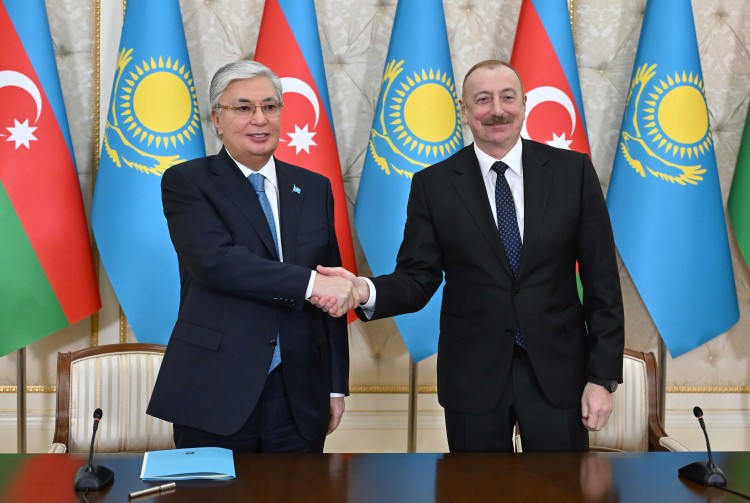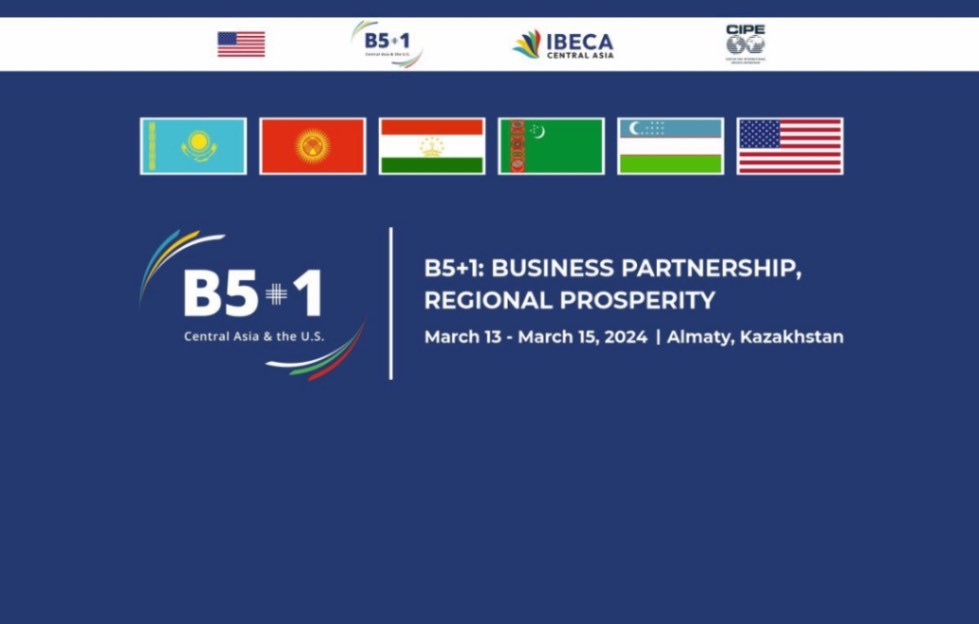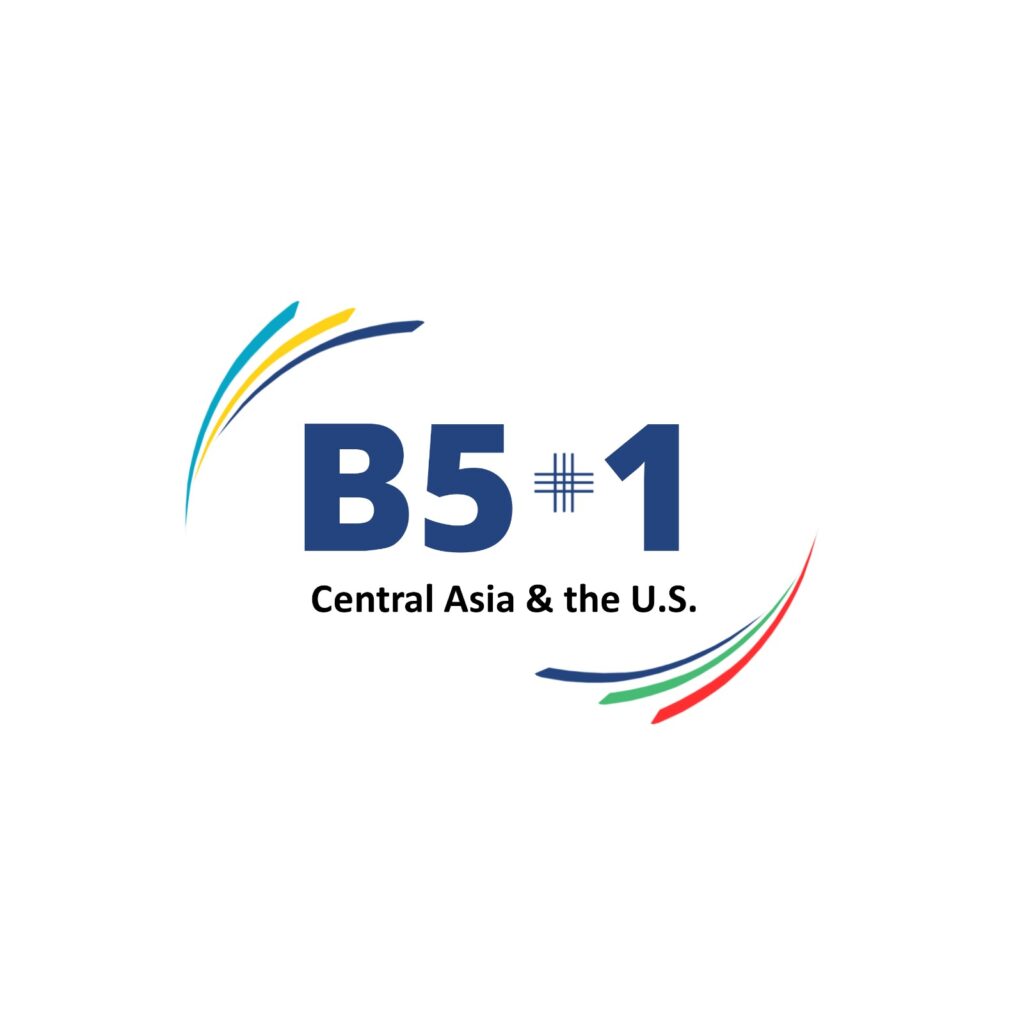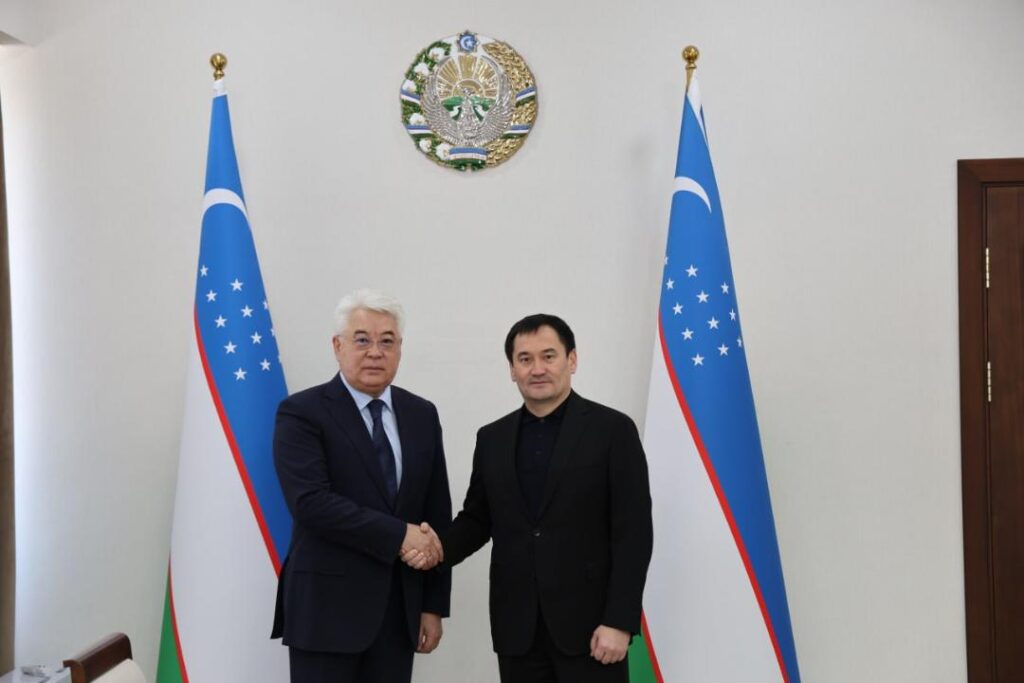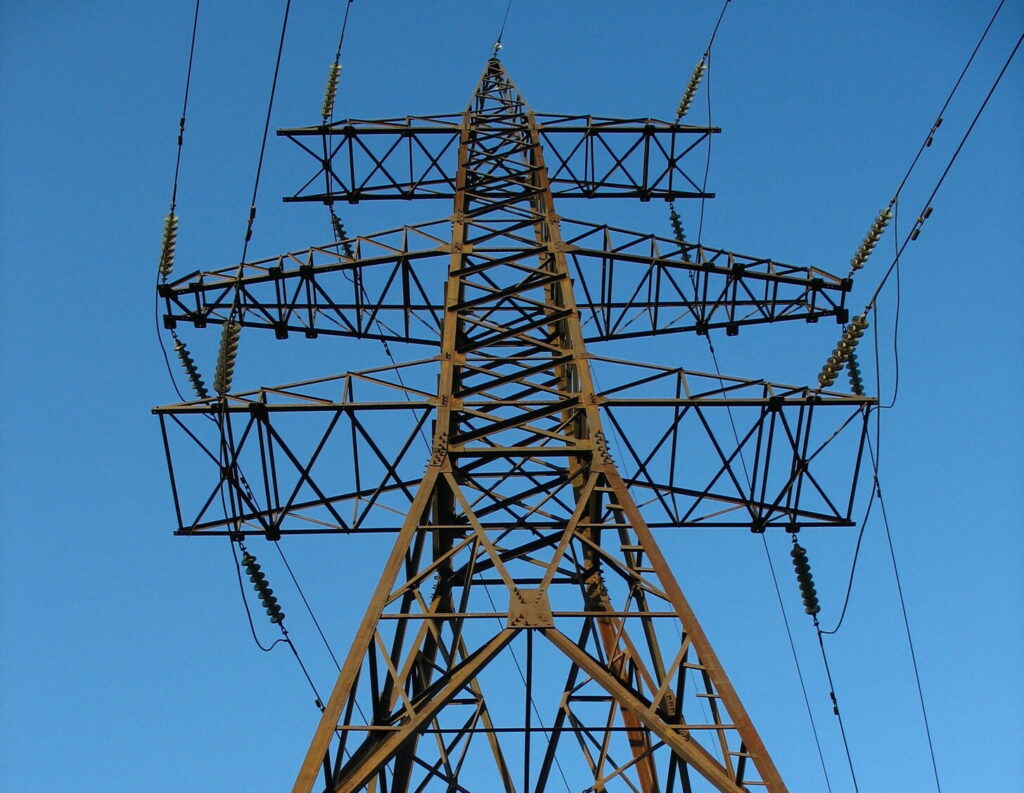Trans-Caspian Corridor High on Agenda of Kazakh President’s Visit to Azerbaijan
On March 11th, Kazakhstan’s president Kassym-Jomart Tokayev and Azerbaijan’s president Ilham Aliyev attended the first meeting of the Interstate Council of Kazakhstan and Azerbaijan in Baku where freight and oil shipment across the Caspian Sea was high on the agenda. The leaders also participated, by teleconference, in a ceremony marking the arrival of the first container train in Azerbaijan’s Absheron station following its departure on February 28th from the Kazakh transport and logistics centre in China’s Xi'an, via the new section of the Trans-Caspian International Transport Route (TITR). At the ceremony, Tokayev emphasized that against current global geopolitical turbulence, the creation of a new transport and logistics framework for Eurasia has a key role to play in nurturing close and fruitful cooperation between Kazakhstan and Azerbaijan. Following talks with the Azerbaijani president, Tokayev spoke of the intensifying degree to which other countries struggle to access transport and logistics opportunities. “This is a strategic area. As testified by today’s ceremony, the close interaction between Kazakhstan and Azerbaijan, as natural partners, is therefore both gratifying and highly significant.” Outlining other issues raised at the meeting, the Kazakh president told the press, “We discussed joint efforts in the fields of digitalization, the creation of artificial intelligence, and the construction of fibre-optic communications along the bed of the Caspian Sea. Each is a unique project.” Azerbaijani President Ilham Aliyev reiterated that the Trans-Caspian transport corridor will determine the level of regional cooperation. “It is impossible to become a transit country without good relations with neighbours. Both Kazakhstan and Azerbaijan have demonstrated their commitment to regional cooperation and strengthening their relations with their neighbours. We are separated the Caspian Sea but this is no longer an obstacle. On the contrary, with the Trans-Caspian transport route set to reach its full potential, the Caspian Sea is a bridge not only between our countries, but also between many others too.” In his report to the Kazakh-Azerbaijani Business Council on cargo transported via the TITR between Kazakhstan and Azerbaijan, Satzhan Ablaliev, Kazakhstan’s Deputy Minister of Transport, stated: “The volume increased by 65% in 2023, and in the current year, is planned to increase by a further 43%, of up to 4.2 million tons. In January alone, the volume of transportation increased 2.5-fold compared to January last year. The transit of Chinese containers has increased almost 3-fold.” During Tokayev’s visit, Kazakhstan’s national oil and gas company KazMunayGas and Azerbaijan’s state oil company SOCAR signed an agreement to increase the transit of Kazakh oil across the Caspian Sea through Azerbaijan along the Aktau-Baku-Tbilisi-Ceyhan route to 2.2 million tons per year. This represents significant progress on an agreement drawn up in 2022 to transport up to 1.5 million tons of oil along the same route. The two companies also signed a Memorandum of Strategic Cooperation on the purchase and sale of Kazakh oil for further processing at SOCAR’s refineries and subsequent trading in the regional and global markets.
asd